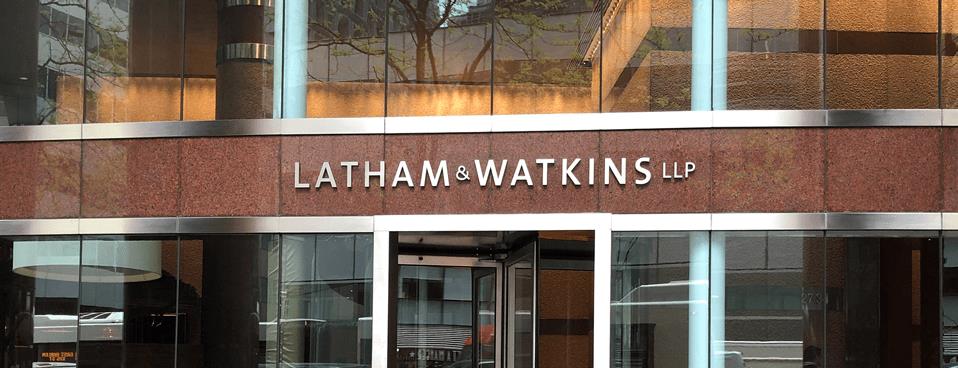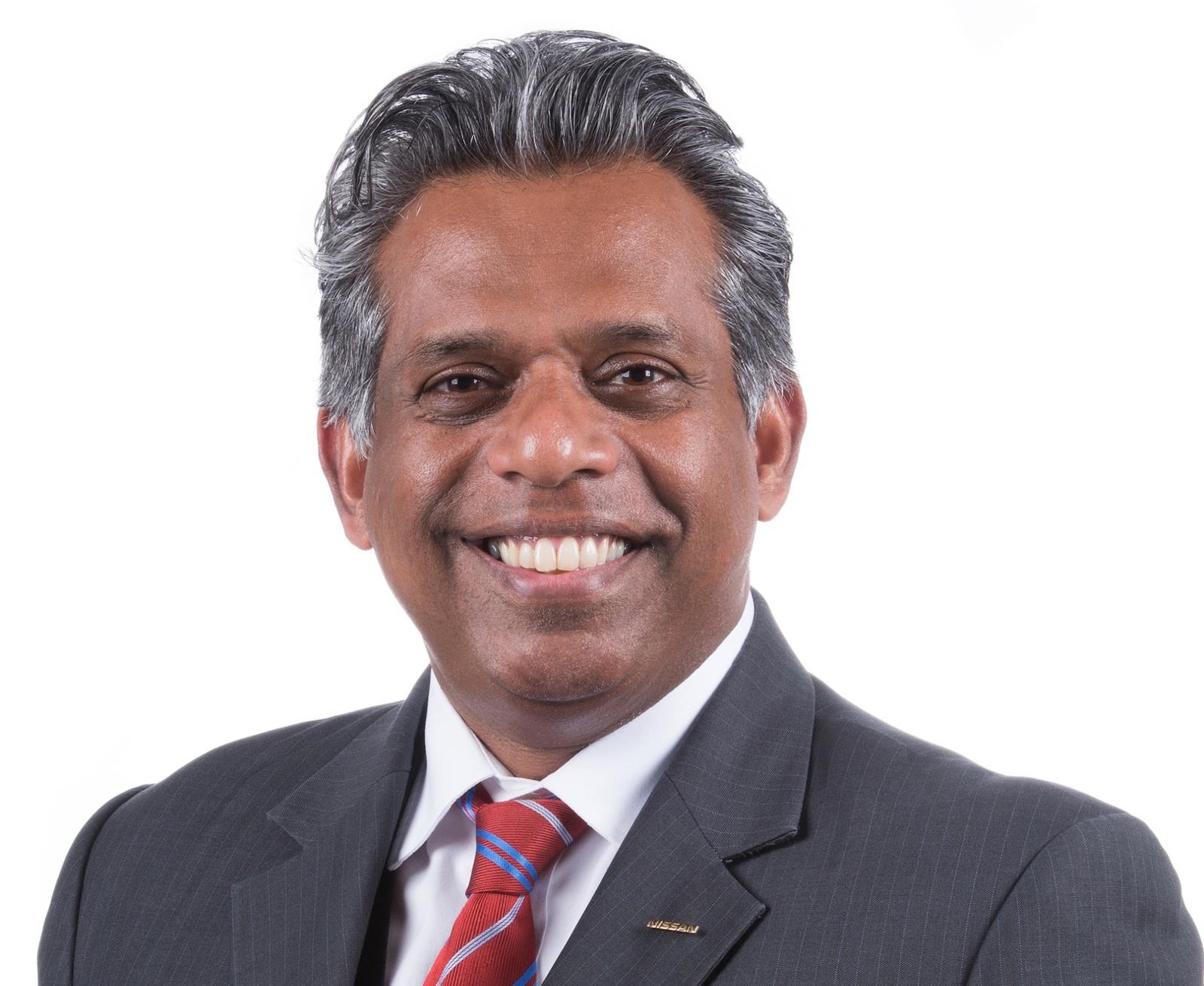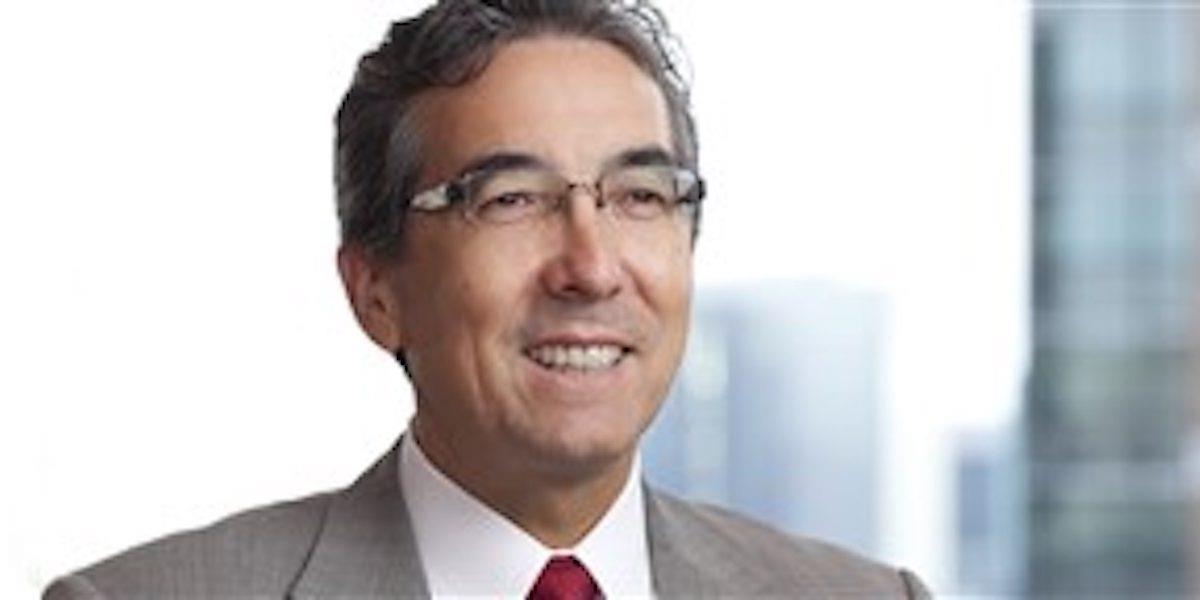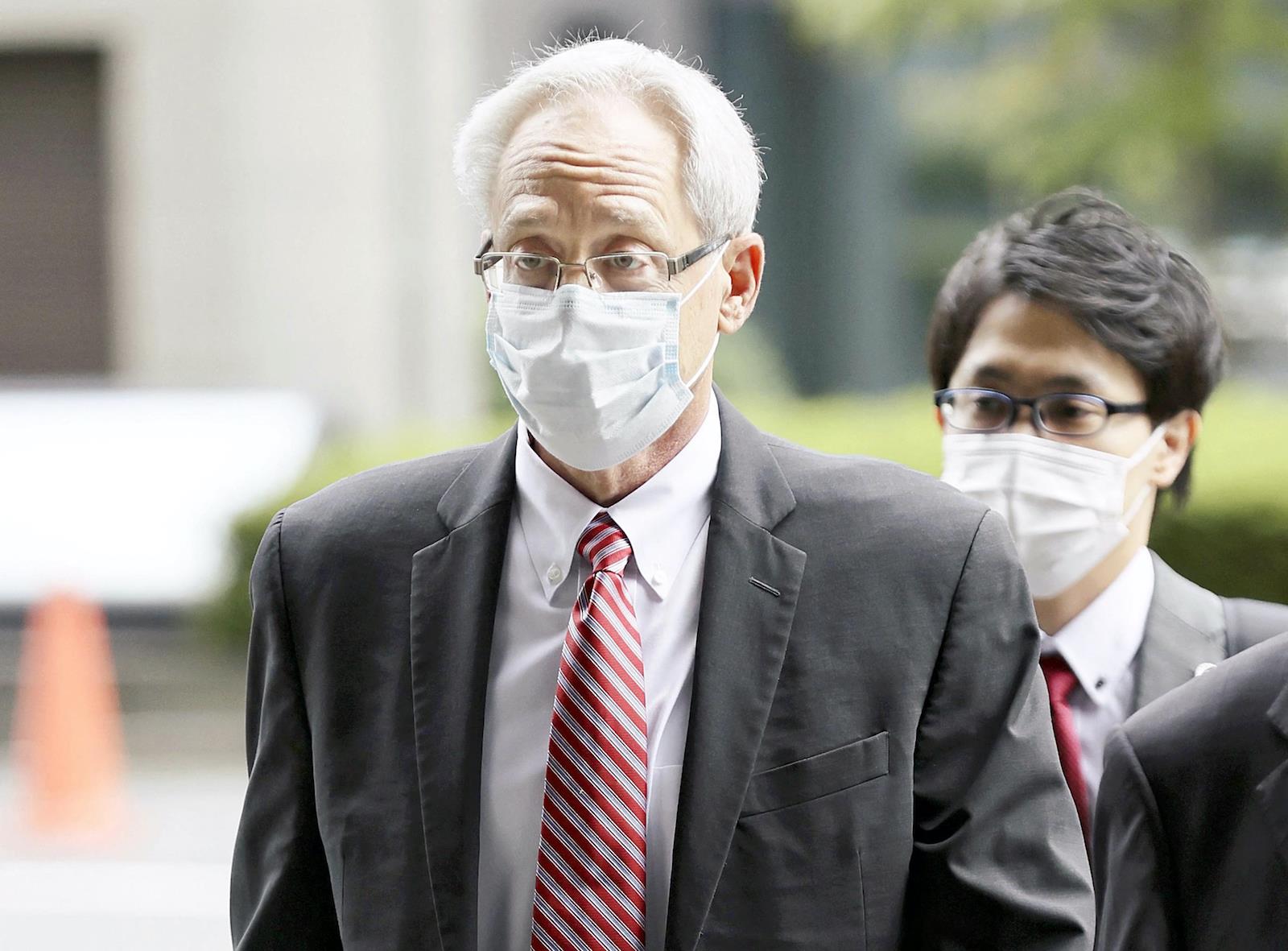(MENAFN- Asia Times)
Based on information from additional interviews and newly obtained documents, Roger Schreffler has expanded his latest series (begun in September) on Nissan and the Carlos Ghosn case. This is part 10. Read part 1 here , part 2 here , part 3 here , part 4 here , part 5 here , part 6 here , part 7 here , part 8 here . and part 9 here . Stay tuned for additional parts to follow.
For the casual observer of the Carlos Ghosn story, the first full-throated rebuke of the ethics of members of the law firm Latham & Watkins LLP came from Ghosn himself on January 8, 2020, when he used words like“unscrupulous” and“vindictive” to characterize the lawyers' conduct.
Ghosn was speaking at his widely watched news conference in Beirut eight days after his sensational year-end escape from Japan in a large black musical equipment box. His previous year's ordeal was still fresh in his mind. His nerves were clearly raw. After all, he had been muzzled for 13 months by his Japanese captors, who, to keep him silent, had even threatened his family.
This tenth installment in our series reveals how a dissident faction within Nissan management, aided by an American law firm, manipulated the Japanese legal system in what is now the biggest industrial scandal in the nation's history. Losses by our count, just focusing on market capitalization and earnings, exceed $20 billion. Total losses, including plant closures and other restructuring costs, are believed to amount to more than $100 billion.
We will focus on Latham & Watkins, which received Law360's“White Collar Group of the year” award in 2019 in part for its handling of the Carlos Ghosn case. We will point to documents and let readers decide if the firm's two lead Tokyo attorneys were working primarily for Nissan – or for the group of executives who backed Ghosn's ouster – and whether they crossed ethical lines of the legal profession.

Latham & Watkins New York office. Photo: Economist & Jurist
The two lawyers, both partners in Latham's Tokyo office, are Michael Yoshii and Hiroki Kobayashi.
As we've done with them and other people named in past stories, we have reached out to both individuals to be interviewed. We've similarly approached Martin Saywell, a partner in Latham's London office who is reputedly the link between the firm and Nada from their days as students at Chuo University.
We have also again requested interviews with Nada and four Nissan board members – Motoo Nagai, Masakazu Toyoda, Yasushi Kimura and Jenifer Rogers – who also serve on the board's audit committee and who, in September 2019, participated in a whitewashing of the findings of the internal investigation into Ghosn .
We received no reply. (We also were not granted interviews for this story with two former top in-house Nissan lawyers, Christina Murray and Ravinder Passi, who left the firm after being relieved of their responsibilities in the Ghosn investigation.)
“Essentially you have a criminal investigation run by one of the alleged criminals who was aided and abetted by lawyers who knew it,” said a source who is advising us informally on legal matters for this report. “The one thing they consistently made sure of – that would appear to be all key players – was not to inform the board. This is wildly unethical and illegal behavior.” (The alleged criminal, actually more than alleged, is Hari Nada, who was Ghosn's and American defendant Greg Kelly's main accuser, and who had plea-bargained to Japan's equivalent of a felony in October 2018.)
To that source's characterization, William Cleary, a Japan-based expert on Japanese law with a doctorate in Japanese criminal procedure, added that the obligation of a lawyer hired by a corporation“is to the corporation. It's just basic lawyer common sense that the responsibility of a corporate lawyer is to avoid conflicts of interest and remember that you represent the corporation and not any individual inside.
“The only ethical choice,” Cleary asserted,“is to say, 'No, I'm sorry. I work for Nissan only and can't give legal advice to anyone inside the organization even if the person is a friend.”
The third of July
We begin the story on July 3, 2019, when a team of Latham & Watkins lawyers, including Kobayashi and Yoshii, conducted an interview of Nada in the course of which he revealed Kelly's innocence. This interview was conducted seven months after the Tokyo prosecutors' office filed its first charges against Ghosn and Kelly and, separately, against Nissan, which pleaded guilty to committing financial crimes under Japan's Financial Instruments and Exchange Act.

Nissan vice president Hari Nada. Photo: Nissan
Nada admitted to the Latham lawyers that the fees in question, proposed to be paid to Ghosn in due course,“had always been designed to compensate [Ghosn] for post-retirement services.” Nada added that “Kelly explained that reimbursing Ghosn [for lost wages following his 2010 pay cut] was a 'debt of gratitude' or 'moral obligation' owed by Nissan for his services [but] not a legal obligation.” (Italics are ours.)
At that moment, both Latham lawyers, who had been involved with building a criminal case against Ghosn and Kelly, would have known that the charges against the two were contrary to the facts. But although their client was Nissan, and not any single member in management, they did not report immediately to either the board or the Tokyo prosecutors' office that they had evidence that would prove Kelly's innocence.
Separately with respect to Ghosn – who, later in 2019, would avoid trial by fleeing from Japan – they already knew based on other records, some introduced during Kelly's trial, that Nissan's former boss was innocent for at least five of the eight years for which he was charged with concealing income. They knew that because Kobayashi wrote the related 2013 retirement agreement and Yoshi, with Nada, the related 2015 document.
Sandwiched around the July 3, 2019, interview – on May 29 and July 5 – are emails from Yoshii, both copied to Kobayashi, that raise potentially more serious ethics issues.
May 29 email
On or slightly before May 29 lawyers, some on Nissan's payroll and others from outside firms Latham & Watkins and Cleary, Gottlieb Steen & Hamilton LLP, sent Yoshii a draft letter they had prepared for the Tokyo prosecutors' office for Yoshii's review.
The lawyers were trying to reduce Nissan legal exposure in the upcoming Ghosn and Kelly trials arising out of the fact that Nada had turned over his computer, including Nissan's entire legal file dating back more than a decade, to the Tokyo prosecutors' office without board authorization.
We have been told that the original letter, which we haven't seen, was written by Jacqueline Trussell, a senior manager in the Nissan legal department. Yoshii's response on May 29 couldn't have made it any clearer that he was more concerned about protecting Nada and Hidetoshi Imazu – Nissan's statutory auditor, who had gone to the Tokyo prosecutors' office and failed to inform the board – than in protecting Nissan. (The handwritten notes in the memo are ours.)
“Frankly,” Yoshii wrote, “I think certain language in the memo will upset the TPPO. The statement 'Such legal advice was given to the Tokyo Public Prosecutor's Office without the authorization of Nissan' is not factually correct.”
In fact, Yoshii's assertion is itself factually incorrect based on both the statute with respect to auditor duties and the legal chain of command within Nissan's corporate hierarchy.
Hari Nada, Yoshii maintained,
Yoshii went on to point out that Imazu was the chief statutory auditor and Nada oversaw the legal department while both acted on the advice of Takeshi Ohki, an outside criminal lawyer retained in the early phases of the Ghosn investigation. (The outside lawyer's family name actually is romanized Ohki, not Oki as Yoshii spelled it. Sensei – teacher or master – is an honorific accorded to teachers, doctors, lawyers, clergy and other professional people.)
“Stating that the legal advice was disclosed by unauthorized Nissan employees is going to cast a cloud over all the evidence that Imazu-san, Hari, Kawaguchi-san and Oki-sensei provided to the TPPO,” Yoshii warned.“We think the TPPO would not like that.”

Lawyer Michael Yoshii. Photo: Latham & Watkins
Of course they wouldn't because it would have exposed serious inconsistencies and conflicts of interest in the case.
The facts: Imazu, who waited until the day after Renault renewed Ghosn's contract to take his“concerns” to the prosecutors' office (to be discussed in Part 12), had no authority to bypass the board according to Article 382 of Japan's Companies Act.
The statute couldn't be clearer: “Duty to report to directors. If company auditors find that directors engage in misconduct … or that there are facts in violation of laws and regulations … they shall report to the board of directors without delay.”
In Japanese: 取締役への報告義務。 監査役は、取締役が不正の行為をし、若しくは当該行為をするおそれがあると認めるとき、又は法令若しくは定款に違反する事実と認めるときは、遅滞なく、その旨を取締役会に報告しなければならない。
There has been revealed no record of Nissan's board receiving such a report or of Nissan's board giving authorization.
As for the head of the legal department (who concurrently headed Nissan's compliance department) having authorization to bypass the board? Nada was a corporate officer in 2018 (he still is today), not a board member or even executive committee member. He had no authority to bypass the board, multiple knowledgeable sources have told us. Kawaguchi was also an executive officer, not a board member.
It would be up to the California State Bar Association, of which Yoshii is a member, to determine whether he complied with its professional conduct guidelines' prohibition of“conduct prejudicial to the administration of justice.”
July 5 emails
Two July 5, 2019 emails call into question the truthfulness of Yoshii's – and possibly also Kobayashi's – reporting to Christina Murray's task force, which was had been set up the previous October by then-CEO Hiroto Saikawa to investigate Ghosn. In Part 6 of this series we revealed this breach. Here we expand on that to provide the full context.
Both Yoshi and Kobayashi had learned about Nada's criminality from Takeshi Ohki on October 10, 2018 , nine months earlier. Instead of reporting to the board or Nissan's legal and compliance departments, they had kept the information secret while Nada, with Yoshii's active support, was building a case against Ghosn.
In fact, Yoshii had tipped Nada off the following day, October 11, by sending Ohki's advisory to Nada's private email address. Several days later at the urging of Nada's lawyer, Akihide Kumada, Saikawa had fired Ohki, and on October 31 Nada had entered into a plea agreement with the Tokyo prosecutors' office.
All of this was kept secret from Murray's task force until July 5, two days after four Latham lawyers, including Yoshii and Kobayashi, interviewed Nada and got him to admit on July 3, 2019, to facts showing that former Nissan executive Greg Kelly, who is awaiting the verdict in his Tokyo trial, is innocent.

Greg Kelly, former representative director of Nissan Motor Co., arrives at the Tokyo District Court ahead of his first public trial in Tokyo on Sep. 15, 2020. Photo: The Yomiuri Shimbun via AFP
The July 5 emails also reveal a clear intent by Yoshii to limit evidence to be turned over to Ghosn's and Kelly's lawyers.
Yoshii himself had been involved in planning the November 19, 2018 sting operation to have Ghosn and Kelly arrested upon their arrival at Tokyo's international airports and had been in Nada's office when Nada shared the call transcript in which he lured Kelly to travel to Japan.
Yoshii wrote in the second July 5 message: “We don't know if these emails” – he identified 10 including the Ohki memo – “are included in the electronic data that the Tokyo Public Prosecutors' Office intends to produce … but for test run purposes, we'd like to ask the TPPO to withhold these documents and see what they say. Any objections?”
Two hours earlier, he wrote to the same recipients: “As we discussed, if the TPPO will withhold any documents from production to CG/GK (Carlos Ghosn/Greg Kelly), a big if, one of the top priorities would be emails and documents related to the internal investigation.”
Of course, Yoshii was deeply involved with the internal investigation and was about to be caught having spared the truth in his dealings with the task force.
On the recipient list were Kobayashi and Daiske Yoshida, a former Latham lawyer who works for Morrison & Foerster LLP in Tokyo and who had translated the Ohki memo for Yoshii and Kobayashi. Thus, Yoshida also knew its content. Also on the cc list was Jimmy Dawson, a lawyer in Nissan's legal department, who had traveled to Beirut and participated in the November 19, 2018, raid on Ghosn's residence there.
As for the intent of these and other exchanges we've reviewed, it would be difficult to find otherwise than that it was to try to find ways to prevent turning over exculpatory evidence to Ghosn's and Kelly's legal teams.
A veteran correspondent for Ward's Automotive, Roger Schreffler is also a former president of the Foreign Correspondents' Club of Japan. Next in part 11: The tip of the iceberg – more Latham omissions.
MENAFN07022022000159011032ID1103649893